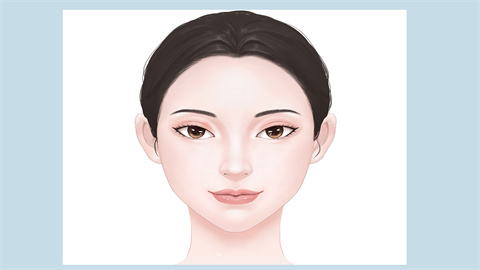How to treat a facial scratch from a fingernail to prevent scarring
Generally, when the face is scratched by fingernails, methods such as cleaning the wound, promoting wound healing, rigorous sun protection, avoiding irritation, and adjusting diet and lifestyle can be employed to reduce the likelihood of scarring. The details are as follows:

1. Wound Cleaning
After the face is scratched by fingernails, the wound should be thoroughly cleaned immediately using a mild facial cleanser or clean water to remove surface dirt and bacteria, thus reducing the risk of infection. The cleaning process should be gentle to avoid further irritation to the wound.
2. Medication Treatment
After cleaning the wound, a recombinant human epidermal growth factor gel may be applied under a doctor's guidance to promote epithelial cell proliferation, accelerate wound repair, and shorten the healing cycle. When applying, ensure the povidone-iodine has dried first, then apply a thin layer without repeatedly rubbing the wound. If a scab forms, do not forcibly remove it; allow it to fall off naturally to prevent secondary injury.
3. Rigorous Sun Protection
Newly formed skin is highly sensitive to ultraviolet radiation; sun exposure may cause local pigmentation and leave dark marks. Therefore, rigorous sun protection is necessary during the healing period: wear a wide-brimmed hat to shield from direct sunlight, and avoid being outdoors during peak sunlight hours. If sunscreen is needed, choose a gentle physical sunscreen and apply it only after the wound has fully healed to prevent irritation.
4. Avoid Irritation
Scratching, rubbing the wound or scab area is strictly prohibited, as this may deepen skin damage and prolong healing time. During the healing process, discontinue the use of skincare products and cosmetics containing alcohol, fragrance, or acids to reduce irritation to the newly formed tissue. Additionally, avoid washing the face with hot water; keep the water temperature between 32°C and 37°C, and handle the affected area gently without vigorous rubbing during cleansing.
5. Adjust Diet and Lifestyle
Increase the intake of foods rich in protein, vitamin C, and zinc, as these nutrients promote collagen synthesis and accelerate tissue repair. Avoid consuming spicy foods, high-sugar foods, alcohol, and tobacco, which may worsen local inflammatory responses. Additionally, ensure adequate sleep (7–8 hours daily) as regular rest patterns can enhance the skin's healing capacity.
Personal hygiene should be maintained regularly; wash hands frequently and keep fingernails short and clean to reduce the risk of scratches. Additionally, use soft makeup tools and products when performing facial care or applying makeup to avoid skin injuries.






